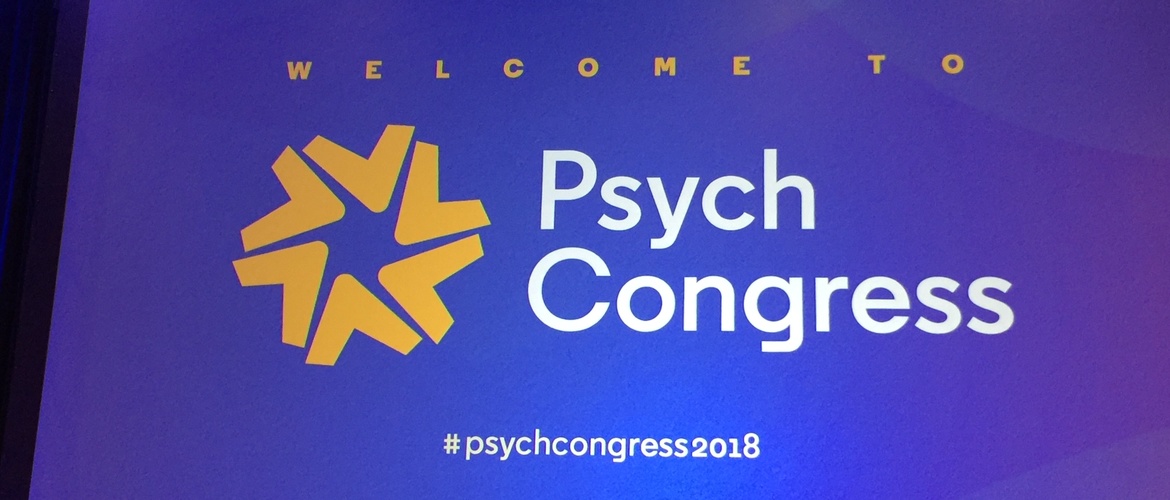
Choose a channel
Check out the different Progress in Mind content channels.

Progress in Mind

Antidepressants are not limited to severely depressed patients, and psychotherapy is not limited to mildly and moderately depressed patients, said Mark Zimmerman, Professor of Psychiatry and Human Behavior, Brown University, Providence, RI, in a thought-provoking, opening plenary at Psych Congress 2018 in Orlando, FL. He added that definitive recommendations are currently limited due to the exclusion of certain patients in clinical trials assessing psychotherapy and antidepressants in depression; and also by the inconsistencies in defining mild, moderate and severe depression.
Severity of depression influences treatment decision-making and is used in treatment guideline recommendations — for instance, those of the American Psychiatric Association (APA) and the UK National Institute for Health and Care Excellence (NICE) — but the definitions of mild, moderate and severe depression are neither clear nor consistent, explained Professor Zimmerman. He highlighted that no clear consensus exists on conceptualizing severity and that there are no data in the literature on how clinicians determine severity.
No clear consensus on conceptualizing severity of depression
Differentiation between mild, moderate and severe depression – according to the Diagnostic and Statistical Manual of Mental Disorders, 5th Edition (DSM-5) – is based on the number of symptoms, their intensity and level of distress they cause and their manageability, and their impact on social and occupational functioning, he said.
In contrast:
Reliable, valid, and clinically useful methods are needed to determine severity of depression
It is important to have reliable, valid, and clinically useful methods to determine severity of depression, emphasized Professor Zimmerman. He described a study he carried out in which 245 outpatients with depression completed three selfreport scales — the Clinically Useful Depression Outcome Scale (CUDOS), the Quick Inventory of Depressive Symptomatology (QIDS), and the Patient Health Questionnaire (PHQ9). The patients were also rated on the 17item Hamilton Depression Rating Scale (HDRS17).
Significantly fewer patients were classified as severely depressed on the CUDOS compared to the PHQ9 and QIDS, said Professor Zimmerman.1
Antidepressants are one of the most frequently prescribed of all medications, but their effectiveness has been debated, explained Professor Zimmerman.
Different investigators use different cutoffs to define severe depression, for instance some studies have used HAM-D ≥20,2,3 others have used HAM-D ≥284
Different cutoffs to define severe depression have been used in different studies
Official treatment guidelines’ recommendations are related to the severity of depression, he added. The American Psychiatric Association recommends:
The UK National Institute for Health and Care Excellence (NICE) guideline recommends:
Need to improve reliability and validity
An analysis of 45 clinical trials with antidepressants in the Food and Drug Administration (FDA) database revealed more frequent statistically significant differences between antidepressants and placebo for trials that included patients with more severe depression:
Early discontinuation was more frequent among patients whose mean initial HAM-D scores were higher. The research concluded that these data may help informing future antidepressant clinical trial designs. However, these findings do not apply to clinical practice, Professor Zimmerman said, because many of these patients would not qualify for enrollment in a clinical trial due to strict inclusion and exclusion criteria.
The relationship between initial severity and antidepressant efficacy is attributable to decreased responsiveness to placebo among very severely depressed patients, rather than increased responsiveness to medication
In 2008, a further analysis of 35 clinical trials with antidepressant in the FDA database concluded that the relationship between initial severity and antidepressant efficacy is attributable to decreased responsiveness to placebo among very severely depressed patients, rather than increased responsiveness to medication.7 This conclusion, which was interpreted in the context of the NICE guideline and based upon a 3-point change in HAM-D, led to a fiercely debated controversy about whether antidepressants worked.
The studies have limitations, explained Professor Zimmerman, because:
The National Institute of Mental Health Collaborative Study investigated the effectiveness of two brief psychotherapies, interpersonal psychotherapy and cognitive behavior therapy (CBT), for the treatment of outpatients with depression. Professor Zimmerman explained that 250 patients were randomly assigned to:
Antidepressant plus clinical management was generally most effective, and placebo plus clinical management least effective
Patients in all treatment groups showed a significant reduction in depressive symptoms and improvement in functioning. Antidepressant plus clinical management was generally most effective, and placebo plus clinical management least effective.8 The study recommendation that psychotherapy was not effective for severe depression has proved controversial and is being reinvestigated.